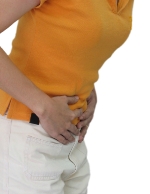IBS Treatment – Exercise

Physical activity has been proven to be beneficial in many chronic conditions, such as obesity, hypertension, diabetes, and hypercholesterolemia. Exercise is beneficial for all areas of the body, as it helps to strengthen muscles, improves the mood, and prolongs life.
Studies have shown that physical activity helps to improve gastric motility as well as intestinal transit of solids and liquids in the gut. People who had abdominal surgery are encouraged to ambulate (walk) as soon as possible to expedite recovery. People with irritable bowel disease (IBS) can also benefit from physical activity. Abdominal bloating and gas-related symptoms are frequent complaints in patients with functional gut disorders, particularly irritable bowel syndrome (IBS) and functional bloating. These patients have impaired clearance of intestinal gas, and when confronted with a gas overload, which is well tolerated by healthy subjects, they develop gas retention, symptoms, and abdominal distension. Gas clearance and homeostasis in healthy people is controlled by regulatory reflexes, and this reflex control fails in people with bloating. Exercise helps to improve gas clearance and relieve abdominal bloating experienced in IBS.
Exercise also has been proven to relief stress by releasing endorphins, which helps to improve the mood. Exercise may help relieve symptoms of IBS that are exacerbated by stress.
Exercise maybe beneficial to people with diarrhea-predominant IBS, because it decreases colonic motility. When exercising, the sympathetic nervous system is activated, and causes an increase in heart rate, respiratory rate, and systolic blood pressure. In the gut, this sympathetic stimulation has an opposite effect, and decreases smooth muscle activity in the gut. During rest, colonic motility returns to normal.
Any type of exercise may help to relieve IBS symptoms, as long as they are generally tolerated and are not too strenuous for the body. Good exercises include yoga, walking, light jogging, biking, and swimming.
